22\01\2013
Written by Joff
Imperfect Utopias
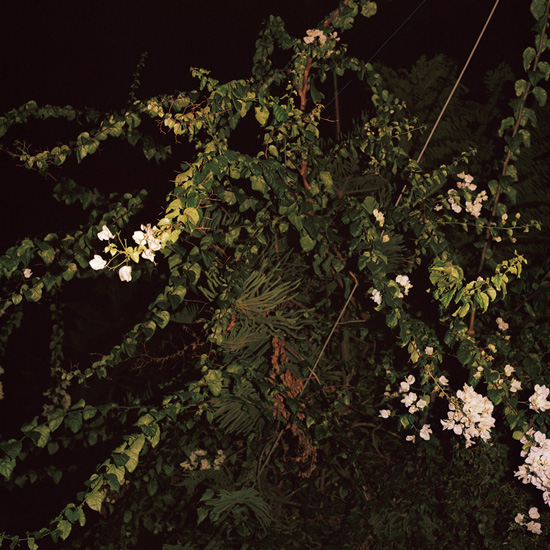
Written by Guido van Eijck
A well received book and expositions all over the United States and Europe: Irina Rozovsky’s star is rising. Her photography shows how human behavior and the surroundings people live in are closely related. “There is a narrative that forms in my mind that refers to the origins or history of the place where I am. The images I search for visualize this narrative.”
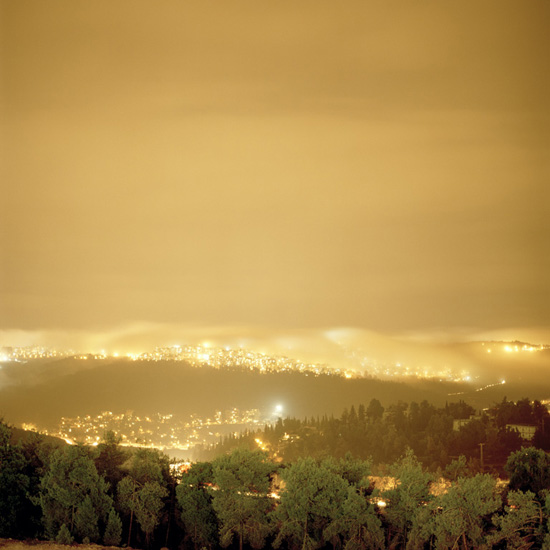
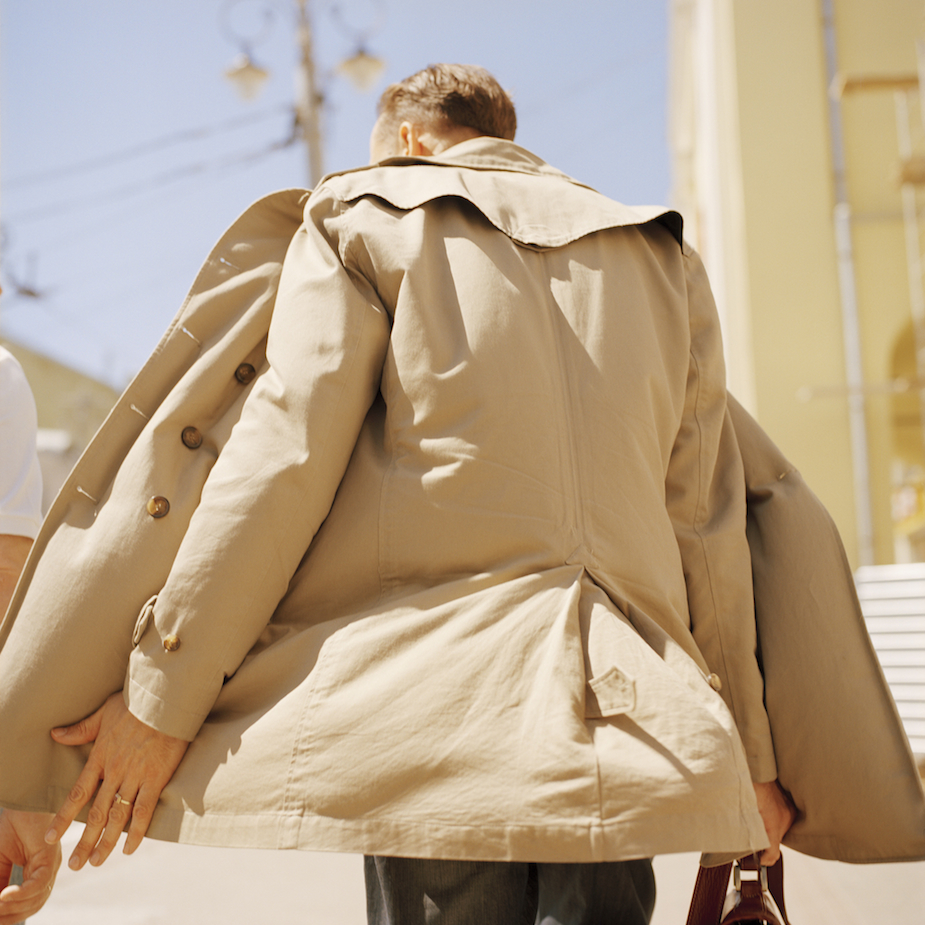
We met in a bar in the Dutch city of Breda. A bar seemingly stuck in time; with lace tablecloths and horrible coffee. Outside, the rain was pouring. Irina Rozovsky ordered a tea mixed with a shot of whiskey, to warm up. Rozovsky (31) was in the Netherlands to visit the BredaPhoto festival, where works from her book One on Nothing were on display. It is a series made in Israel, a country marked by ongoing conflicts. Images coming from the area easily suffer from what the viewer already knows about this conflict. Instead, Rozovsky tried hard not to give an account of politics and conflict. “I don’t really follow the news closely”.
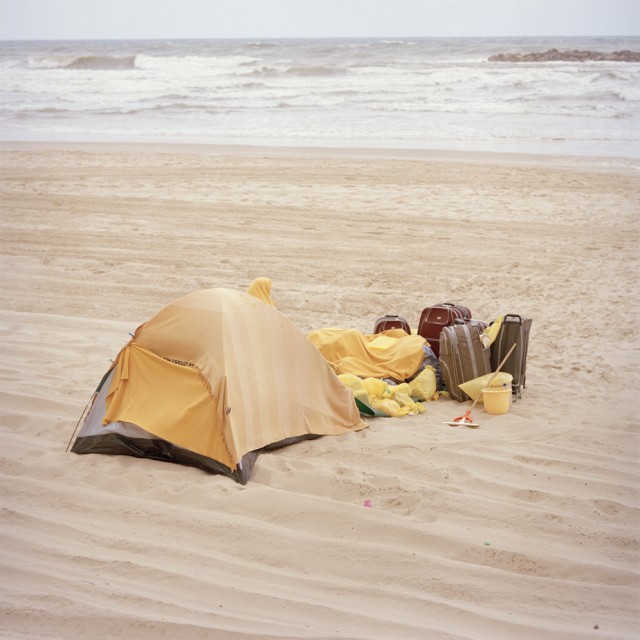
Neutrality
It is difficult, telling a non-political story from such a thoroughly political place. Impossible, perhaps. Take, for instance, the picture Rozovsky made of a ruined building. She felt the image of the fallen structure would add to her story. But after showing it to others, the graffiti on the wall was translated and another level was revealed when. “Someone had had written in Arabic ‘God is great’, and nearby in Hebrew was the that question ‘which one?’”. The conflict is everywhere, it’s written on the land.That is not to say she is wrapped up in the naive dream of an objective observer. Instead, Rozovsky actively seeks a form of neutrality. “Neutrality is not apathy”, she states, “on the contrary—it’s a form of understanding the complexity of a conflict. The context of the place where I am working is very important, and what has happened there becomes a code to what will happen.”
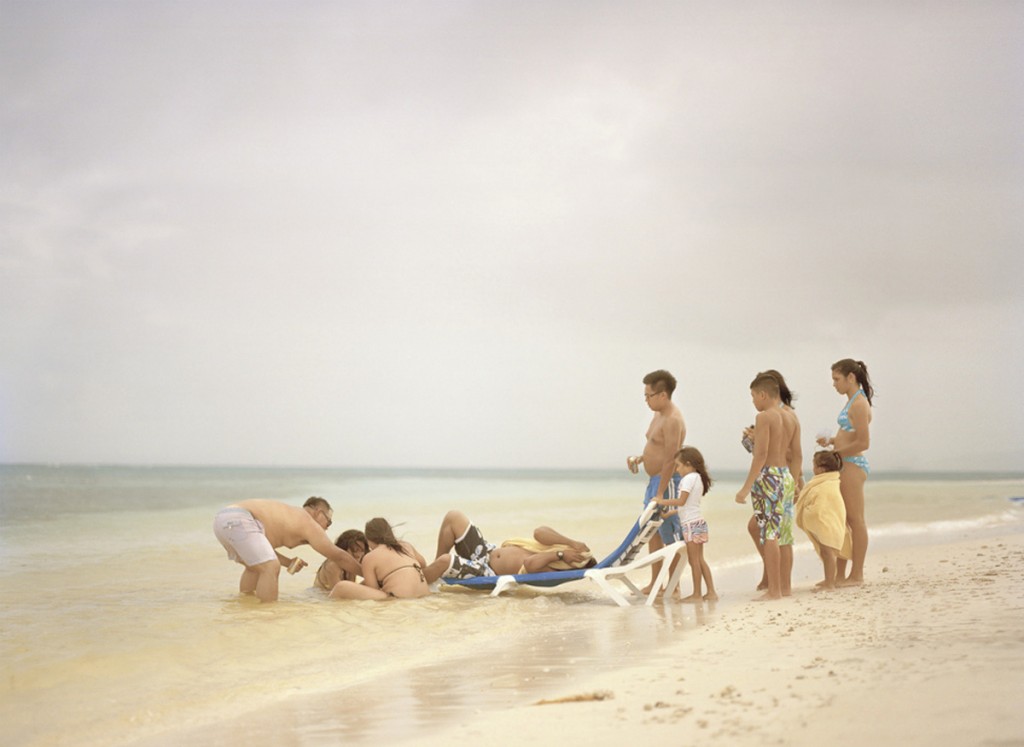
Violent landscape
Irina Rozovsky does not think of herself as a documentary photographer. “The series is not a valid description of Israel, it’s hard to tell where the photographs are made, it has no facts and no one-sided statement”, she says. The country is seen almost as a backdrop. “I was not interested in showing the Israel we know from the news and media. I chose to portray it as a myth, perhaps the way this ancient, dusty place sits in our imagination and unveils a universal human nature”, Rozovsky says. Hers is therewith a story of people moving through and responding to their landscape, their living environment. And of the impossibility of escaping the history shaping that environment.
“It is the landscape that breeds violence”, Rozovsky says about what she saw in Israel. “In a way there is a precedent here that dictates how people behave. An Israeli soldier is just a kid, it’s not his fault. And the kids throwing stones, it is not their fault. You cannot pick a single person to blame. It is a sort of cycle that keeps the conflicts going here, and there is always someone higher and more responsible. Up until the point where it is ‘history’, or God”.
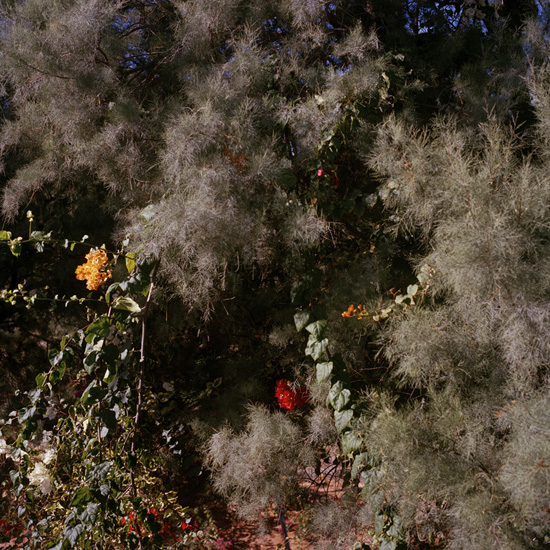
Imperfect Utopias
Irina Rozovsky was born in the Soviet Union in 1981 to a Jewish family. Jews were discriminated against throughout the entire Soviet Union, and in the late eighties the family decided to leave. “We initially wanted to go to Israel”, she recalls, “but because we already had family in the United States, we were allowed to go there”. They moved to the city of Boston, on the East coast. Although she grew up in the United States, she is still very drawn to Israel. “The utopian dream of Israel as a country for the Jews is great, but like every dream it is far from reality”.
That is not to say that Rozovsky limits herself to Israel. Last May, The New Yorker published parts from In Plain Air– an ongoing project photographed in one of the first ‘democratic parks’ in the US. Situated in Brooklyn, a social-economically divided borough of New York, Prospect Park was built in the nineteenth century as an effort to foster the coexistence of people through a shared, recreational space. “There are rules and boundaries to how people in the city interact, where and how they live”, Rozovsky says about New York, where she now lives. “For a moment in the park, I hope these rules break down. They do not of course, as the park stays quite divided, but it nevertheless has this utopian feeling and hope. And that is amazing! The country is in crisis and the park is badly kept, but people do get together and share the land, the air, the moment—an ideal vision fulfilled”. After a moment of silence she continues: “it is like a badly kept Garden of Eden. I think I am interested in those kinds of imperfect Utopias”.
